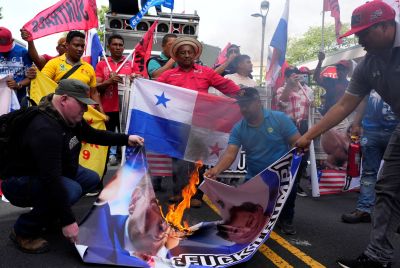Cuba Slams US Funding To "promote Democracy" As Illegal
Cuba slammed U.S. funding for "democracy promotion" programs as interventionist and illegal, aimed at toppling the government just as the island nation faces its worst economic crisis in decades, the country's Vice Foreign Minister said on Friday.
The Biden Administration in July announced a call for applications to award up to $6.25 million to nongovernmental organizations and individuals as part of a decades-long program authorized by U.S. law to "promote peaceful, nonviolent democratic change in Cuba."
Vice Foreign Minister Carlos Fernandez de Cossio told Reuters in Havana that the programs - which over several decades have spent upwards of $200 million on Cuba-related projects - in fact leverage foreign funding to foment unrest on the island.
"In any nation, this is illegal," he said, noting the United States has legislation against people who act as foreign government agents.
"That is precisely what the United States is trying to promote in Cuba today," he said.
The U.S. State Department did not immediately respond to a request for comment.
The U.S. Agency for International Development (USAID) call for applications warned of the challenges and risks of working in Cuba, and said recipients "will not serve as an agent or act under the direction of USAID."
De Cossio's allegations come as the island nation suffers its worst economic crisis in decades, with widespread blackouts and hours-long lines for such basic supplies as food, fuel and medicine.
Cuba has long blamed the U.S. Cold War-era embargo and financing of dissidents for its economic and social woes, but De Cossio said the most recent U.S. funding for pro-democracy groups was specifically crafted to topple the communist-run government.
"They (the U.S) are depressing the standard of living of the population and at the same time pouring millions of US taxpayer dollars into urging people to act against the {Cuban} government," De Cossio told Reuters.
The United States called for applications from groups that would provide humanitarian assistance for persecuted individuals and for those "empowering Cubans through access to information."
The deputy foreign minister's statements on Friday follow the first high-level talks between the two countries in four years, at the time characterized as constructive by the long-time foes.
Relations have nonetheless remained tense, with the United States and human rights groups accusing Cuba of stifling free speech and wrongly imprisoning protesters following widespread anti-government rallies on the island last July 11. Cuba has denied those allegations.
© Copyright Thomson Reuters 2024. All rights reserved.





















